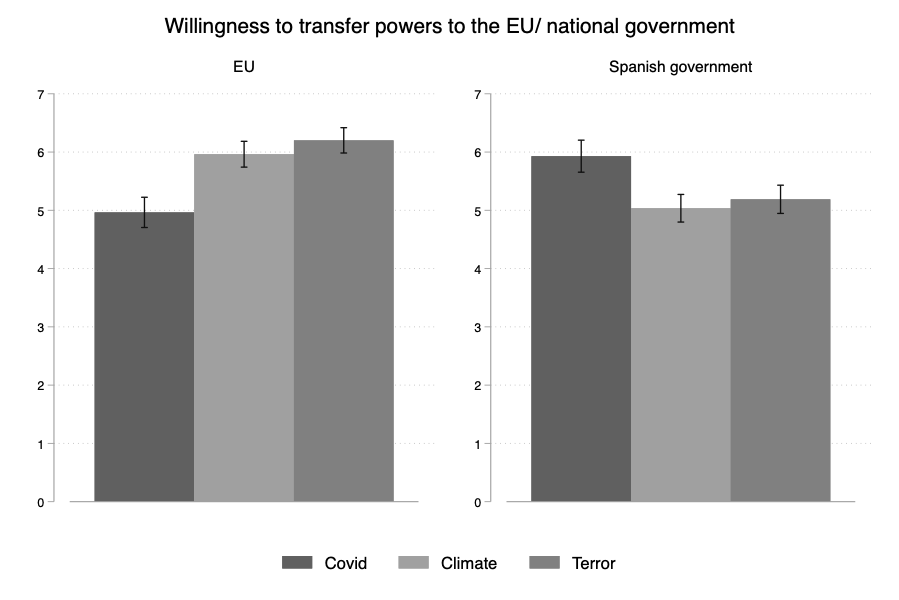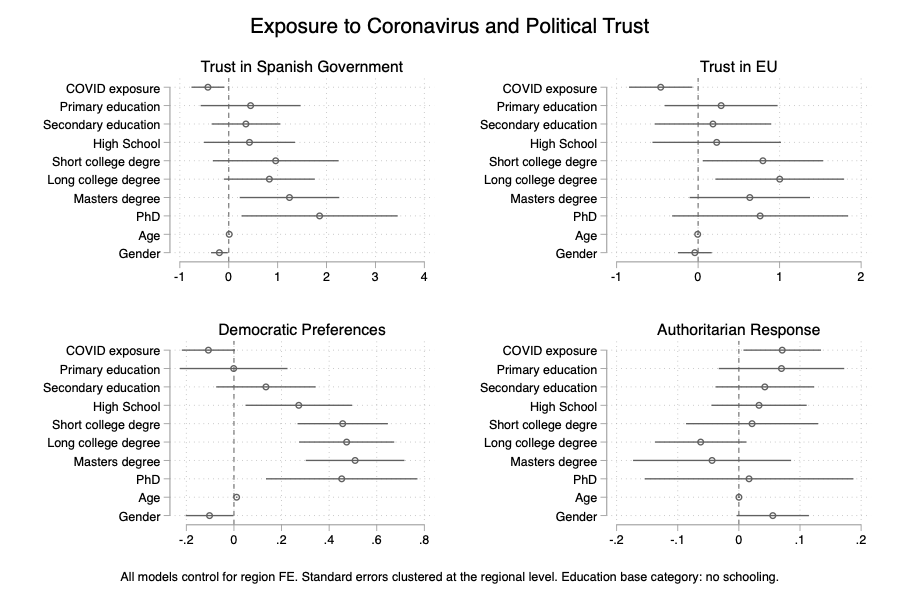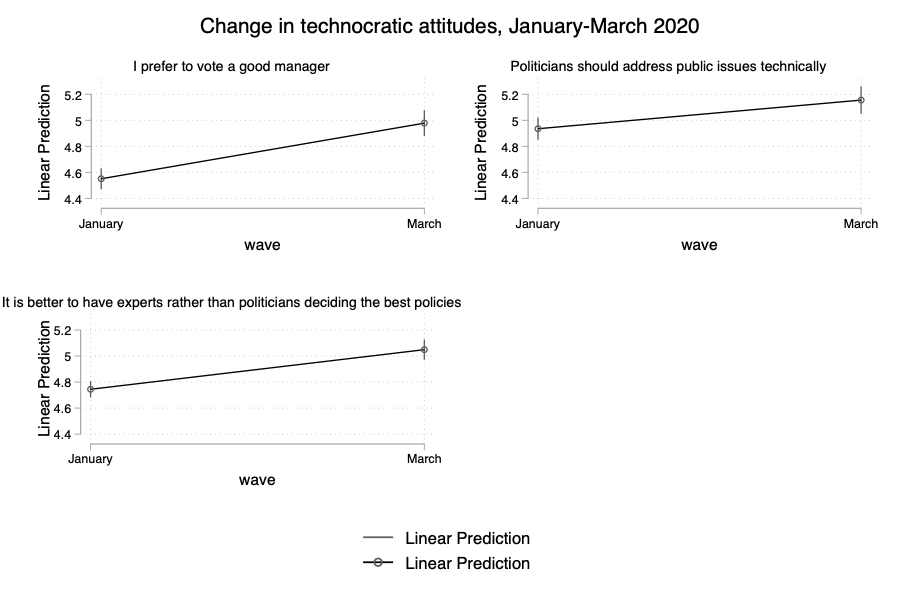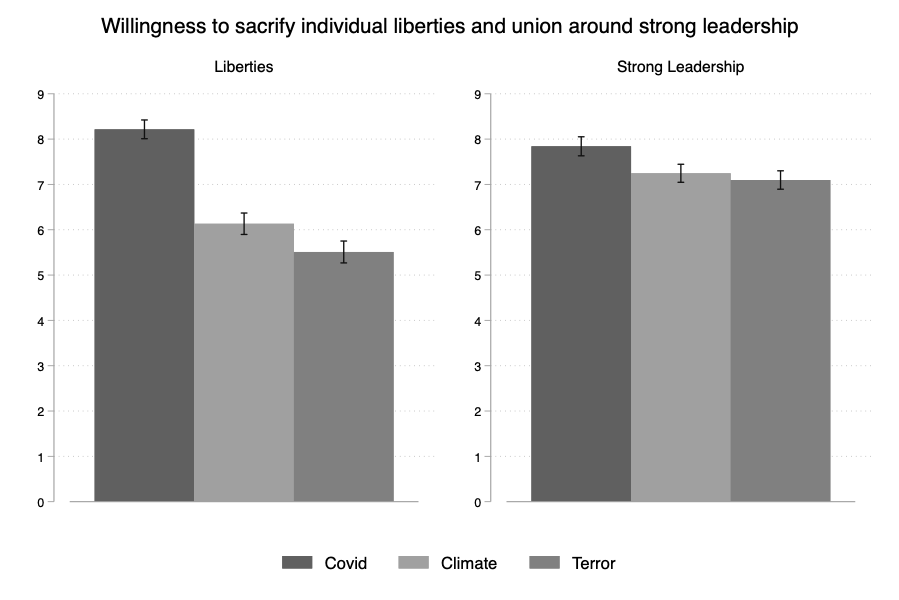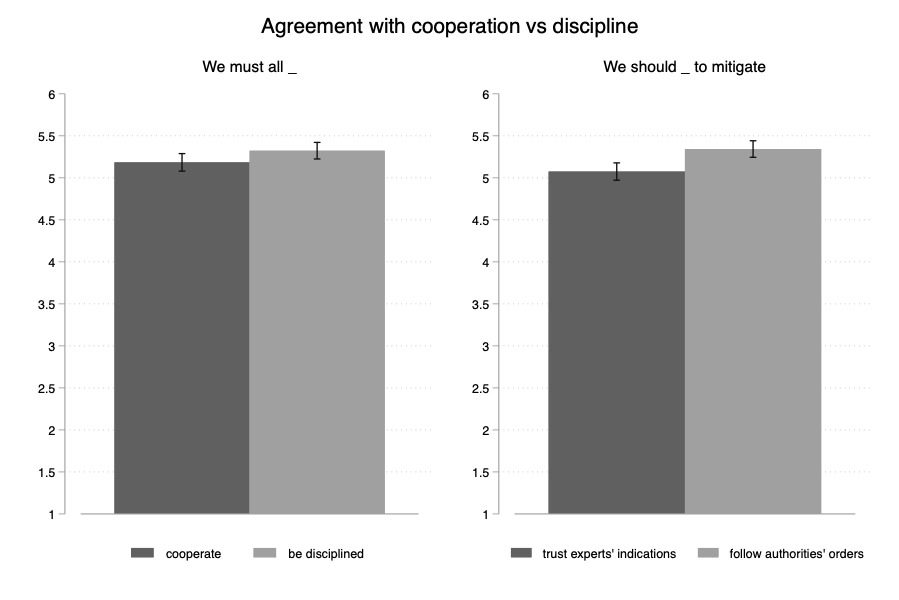Happy to share a new working paper “Pandemics meet democracy: experimental evidence from the COVID-19 crisis in Spain”, which is joint work with @AndreuArenas (UB-IEB), @afalcogimeno (UB-IPERG) and @jordimunozm (UB-IPERG). Link here: https://osf.io/preprints/socarxiv/dkusw/">https://osf.io/preprints... 1/10
Could the COVID-19 outbreak weaken democracy? We address this question with a set of survey experiments fielded in Spain in March 2020, right after the outbreak; and by using panel data to track within-individual changes in political preferences 2/10
We first designed an experimental design to compare the COVID crisis to other global threats that share the same features of interdependence and potential externalities. COVID is, by far, the threat for which citizens seems trust less the EU and more the national government 3/10
Our results reveal sizable negative effects of the COVID-19 crisis on democratic attitudes. We start by analyzing to what extent the COVID shock had negative consequences on the levels of individuals’ political trust and democratic preferences 4/10
Afterwards we show, using panel data with individual fixed effects, a sharp increase in preferences for technocracy between January and March 2020 5/10
Right after the outbreak, citizens expressed significantly more support for expert rule and a technical approach to the management of public affairs. This shift towards technocracy was especially intense among those with relatives or friends infected by the virus 6/10
We also find a change in the preferred qualities of politicians: the shock makes citizens value capacity and training more intensely, at the expense of other qualities such as being honest or approachable 7/10
The results show both a widespread willingness to sacrifice basic civil liberties in order to contain the pandemic, and higher support for strong leadership to face this threat 8/10
Hierarchical frames also appear to be more effective in gathering citizens& #39; support for restrictive measures than more horizontal, cooperative frames 9/10
Finally, we acknowledge the financial support from @FundlaCaixa, @FundlaCaixaCAT and @icreacommunity to this project. Read the full working paper here: https://osf.io/preprints/socarxiv/dkusw/">https://osf.io/preprints... Comments very welcomed! 10/10

 Read on Twitter
Read on Twitter